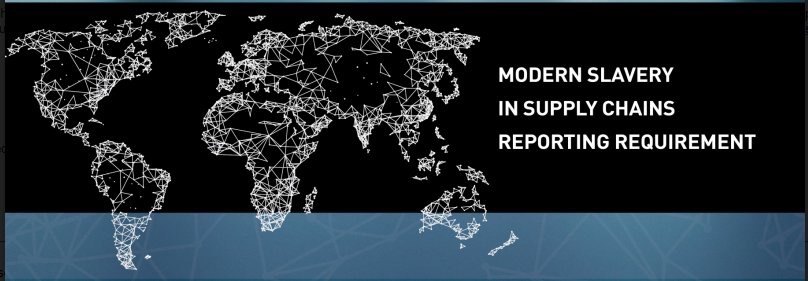
Australia to Enact Reporting Requirements to Address Modern Slavery
On August 16, 2017, the Australian Minister for Justice, Michael Keenan, announced that the Government is proposing to introduce legislation that will require large companies to report annually on their actions to address modern slavery in their operations and supply chains.
The Australian Government has modeled many of the proposals upon the UK Modern Slavery Act but has sought to improve upon it in two significant ways.
First, it is proposing to establish a free, publicly accessible central repository which will house all statements published in compliance with the reporting requirement.
Secondly, the Government proposes that companies will be required to report against a set of four criteria, namely: its operational structure and supply chains; the modern slavery risks present within it operations and supply chains; the policies and processes in place to address modern slavery and their effectiveness; and due diligence processes and their effectiveness. Unlike the UK where reporting against substantially similar criteria is currently optional (this will change if the Modern Slavery (Transparency in Supply Chains) Bill 2017 is enacted) the Australian Government is proposing that reporting against this set of criteria be mandatory.
As a first step to enacting legislation, the Government has announced an “extensive consultation period with industry”. The two ground-breaking initiatives referred to above are therefore not a given, and are both introduced in the Government’s Modern Slavery in Supply Chains Reporting Requirement discussion paper as being “subject to feedback received through this consultation process”.
It is accordingly imperative that companies engage in the Government’s consultation process and show their support for these proposals.
Do Reporting Requirements Actually Work?
The efficacy of reporting requirements to tackle an issue as complex as modern slavery in supply chains can be challenged on at least three counts.
1. Reporting requirements are generally limited to companies with a large annual turnover – in the case of Australia it will only apply to companies with an annual turnover of at least $100 million – and so excludes many entities whose operations and supply chains are vulnerable to the risk of modern slavery.
2. The absence of enforcement measures for non-compliance, such as monetary or criminal penalties, makes it easy for companies to treat the reporting requirements as a non-essential part of their risk-management and compliance culture. The case of the UK Modern Slavery Act is a case in point. In 2016, a year after the enactment of the Modern Slavery Act, The Financial Times reported that only 75 of the estimated 12,000 companies which came under the purview of the Act submitted a report, and of these 75 only 22 complied with the requirements that the company statement be signed by a Director and be published on the company website. A meagre 9 companies reported on the optional criteria relating to due diligence, company policies or other efforts to address modern slavery. That said, the rate of engagement with the reporting process has increased over the last year. The Business and Human Rights Centre has established a Modern Slavery Registry containing 2668 Modern Slavery Company reports (last accessed 16 August 2017) – still only a fraction of the companies covered by the Act.
3. A lack of enforcement ‘teeth’ means that the role of monitoring, evaluation, and enforcement falls primarily on civil society, investors, and the public rather than Government.
Reporting Requirements More Likely to Succeed if Senior Leaders Engage
Having discussed some of the challenges of reporting requirements, there is no doubt that reporting requirements are at least a good place to start. Research analysing corporate perspectives on the UK Modern Slavery Act conducted by Ashridge Centre for Business and Sustainability at Hult International Business School and the Ethical Trading Initiative (‘Corporate Leadership on Modern Slavery’), suggests that for many companies reporting requirements can be a ‘game changer’ leading to significant progress in addressing modern slavery.
According to the report, the engagement of senior leaders is the strongest enabler of corporate action on modern slavery.
Australia’s consultation process is a call for such engagement. Written submissions can be made by mail, fax, online, or via email to slavery.consultations@ag.gov.au. The deadline for submissions is 11:00 PM (AEST) on 20 October 2017.
- Post Tags:
- Australia
- human trafficking
- labour rights
- Posted In:
- Business & Human Rights
- Leadership
Farzana Aslam
Director and Principal Consultant at Kintillo, Farzana has over two decades of professional experience including as an employment law Barrister (3 Hare Court, Middle Temple, London), in-house employment Counsel (Goldman Sachs, Asia-Pacific and Japan), Principal Lecturer, Law Faculty, the University of Hong Kong (Professional Ethics, Civil Litigation, Employment Law, Business and Human Rights), and Chair of Justice Centre Hong Kong.
All stories by: Farzana AslamYou might also like
-
-
Event | Dialogue with a UN Expert on Why Human Rights Should be the Business of Business https://kintillo.com/wp-content/uploads/2017/10/Screenshot-2017-10-17-17.53.02-e1508238869503-1024x1018.png 1024 1018 Farzana Aslam Farzana Aslam https://kintillo.com/wp-content/uploads/2022/05/Kintillo-Farzana-Aslam_headshot-front-BW_450x450-150x150.jpg

-
Event | The Sustainable Development Goals and the Push to Eradicate Human Trafficking in Hong Kong https://kintillo.com/wp-content/uploads/2017/09/IMG_5400-e1505916404711-768x1024.jpg 768 1024 Farzana Aslam Farzana Aslam https://kintillo.com/wp-content/uploads/2022/05/Kintillo-Farzana-Aslam_headshot-front-BW_450x450-150x150.jpg

